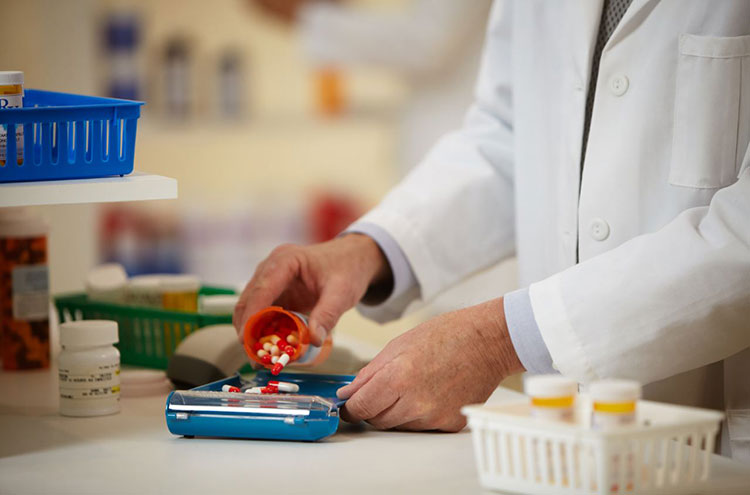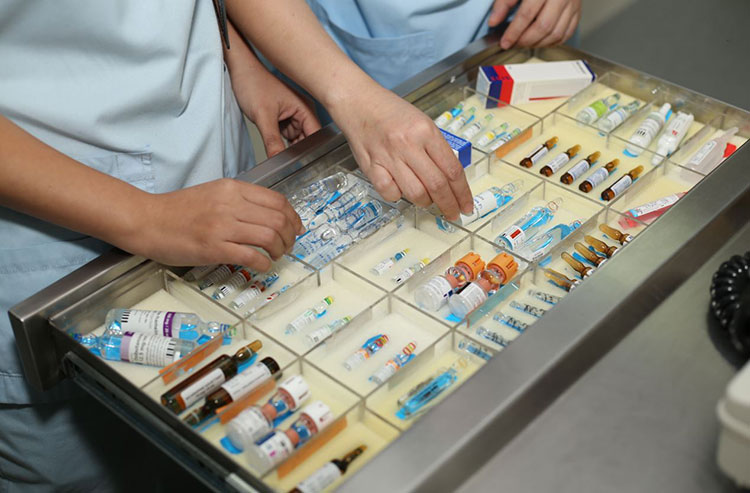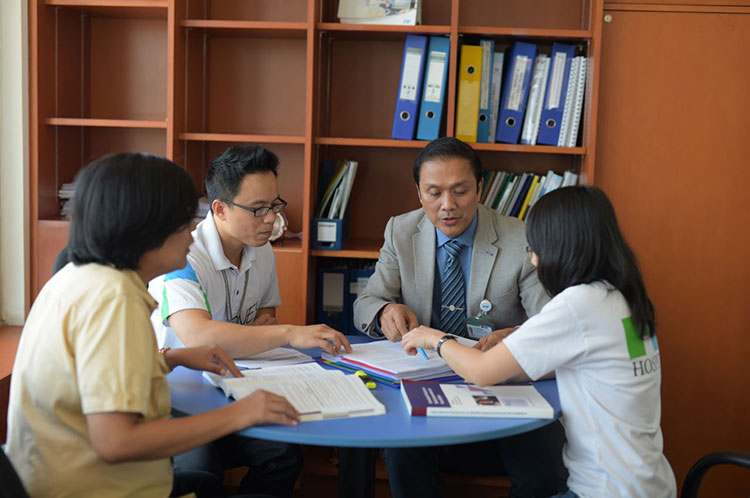Hearing that “The process in antibiotics prescription at FVH is alike a hurdle racing through many checkpoints”. In curiosity, we came to this hospital which is well-known for its rigorous management procedure to find out.

JCI Quality Control Department was my first “target” because it manages the quality of every department within the hospital in order to be in accordance with the rigorous international standards of JCI, including prescribing antibiotics. On the way to the elevator, I ran into a giant antibiotic pill in the shape of a puppet which was waving its hands. This was the area for World Antibiotic Week activation held at FV Hospital. There was a caution sign:
In the corners, there were eye-catching posters designed by doctors and healthcare staffs with the content of expressing the danger of antibiotic abuse. These strong and serious messages that FVH was transmitting has held my foot back. In the thought of that I have enough quite a knowledge of good health, I realized a major flaw in my understanding about antibiotics when filling out the questionnaire here. Do you think you are better than me? Let’s try answering the first question: Does antibiotic is medication to kill viruses, bacteria or all microorganisms?
The death called Antibiotics

At the JCI Quality Control Department, a Philippine director, Mr. Juan Lucas Rosas, welcomed me with the antibiotic-like greeting:
He then presented the dark prospect of widespread antibiotic abuse:
A seemingly macroscopic problem is attached to the life of every human being – that is the key reason why FVH leadership is determining to set strict checkpoints on the terrain of each doctor, ensuring that it is the most accurate medication the patient needs to take.
Pill following procedure

Anesthesiologist is one of the main antibiotic prescribers at FV Hospital, because they are postoperative health monitor. I had met the anesthesiologist, Dr. Nguyen Thi Lam Giang, to ask about this issue and received her satisfied smile:
Having been trained in France, Dr. Giang clearly understands the importance of antibiotic control, but when working at public hospital after returning to Vietnam, she has hesitated when being asked by her colleagues: “Can you ensure patients safety?” In the conditions of un-well sterilizing operation room, sharing beds between patients, un-hygiene, etc. Dr. Giang was obsessed and under great pressure to prescribe excessive antibiotics. Her eyes lit up joy when said about FVH operation room, the standard of one time usage instead of several steaming for the surgical instruments, and about a huge system of limited maximum the false medical maladjustment, seizures or infections, etc. All of which has contributed to the art controlling antibiotics at FVH.
Talking to the experienced doctor, Dr. Nguyen Thi Mai, head of ophthalmology department about the antibiotics prescribing procedure, she said:
With that strict checking procedure, none of doctors at FVH can prescribe antibiotics by their bad emotion, mood, or by pressure from the patients.
Entering the Pharmacy Department to learn more about the antibiotic management system, I was overwhelmed by a comprehensive process which has been careful supervised to the smallest details. This rigorous process is the result of following JCI standards – the gold seal of patient highest safety guarantee that many prestigious hospitals in the world desire. Mr. Mohd Fazli Shuib, Head of Pharmacy Department, showed me a form that the physicians must fill in each time they prescribe a medication belong to the list of high rates of drug resistance. They also need to explain in detail the reason for that antibiotic prescription. Through a dozens of eyes and routine cross-examination software systems, the prescription now can safely reach to the patients. Doctors have to explain their prescription just because there is an antibiotic in it, perhaps throughout Vietnam, this duty only exists at FV Hospital!
Washing hands for patient’s life

At FV Hospital, everything you do, you must follow the standard procedure. While antibiotic resistance is an issue which is commonly discussed in many places, FV continuously implements several intensive antibiotic training programs for the medical team. However, it is not easy to solve the risk of antibiotic resistance. Every smallest detail is noted to minimize cross-infection in hospital whose issue affecting to the increase in the rate of antibiotic use. For example, the canteen of FVH has two distinguished dishwasher areas for the infectious patient’s and other areas.
Hand washing is another very important project at FVH, also to avoid cross-infection and reduce the rate of antibiotic use. JCI Quality Assurance Department continually organizes training programs, checks, monitors, measures and publishes rates of hand hygiene compliance in each department, investigates the root cause of non-compliance. As a result, the hand-washing index (before and after patient contact, medical and surgical instruments contact…) at FV Hospital reached 80-90% now while that of world standard is only 70%.
But why is hand washing so important? Every employee at FV has been well-trained to understand that hand washing is related to safety and life of the patients. Imagine that what happens to doctor who after examining a severely infected patient with a dirty hand then contacts with another patient. More than anyone else, the sick has low resistance who is easy to be infected and also is the most difficult case to be treated. A patient may be at risk just because of skipping the hand-washing procedure of a medical staff! In FV, that can’t be allowed.
(To be continued)



